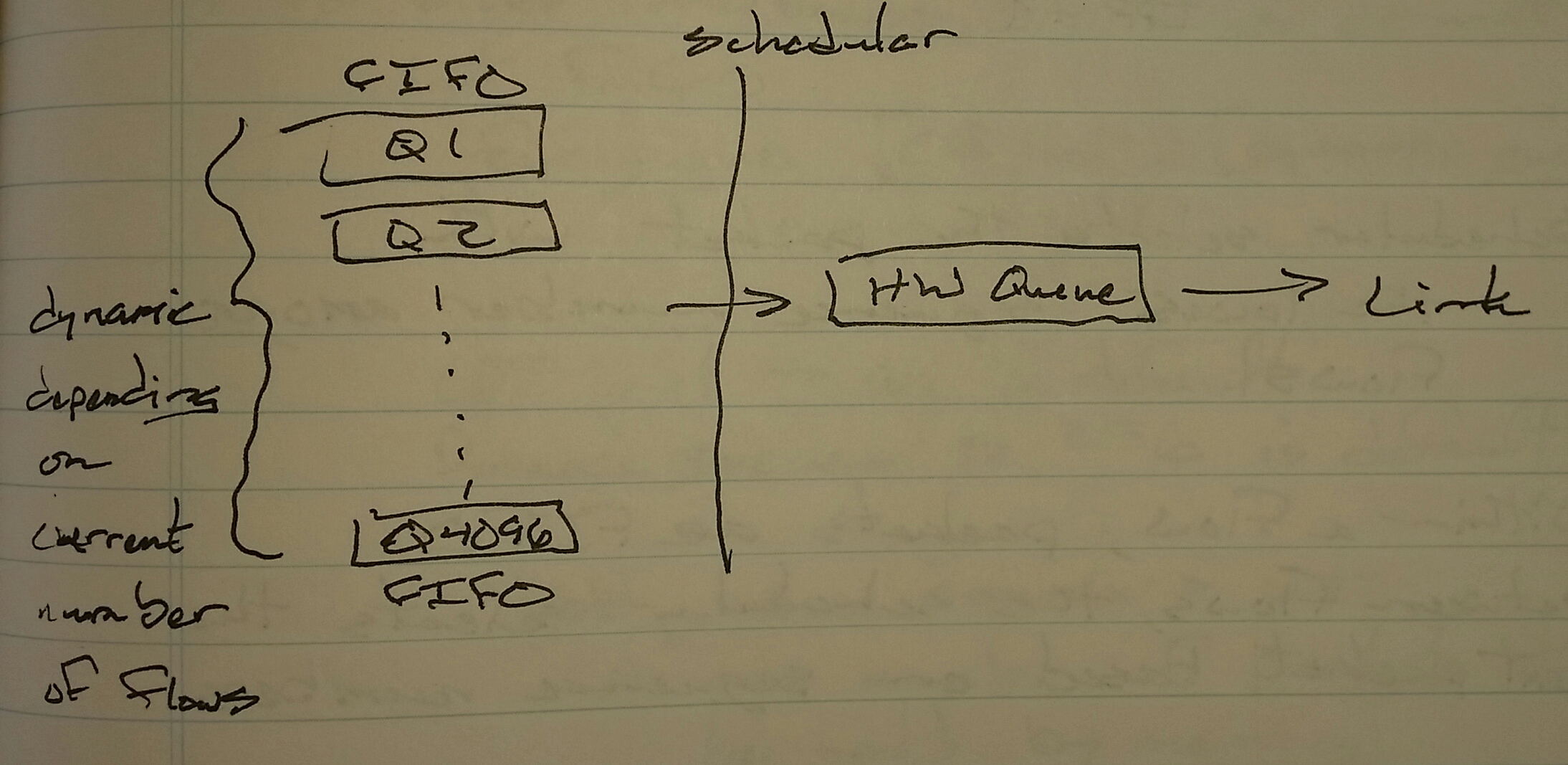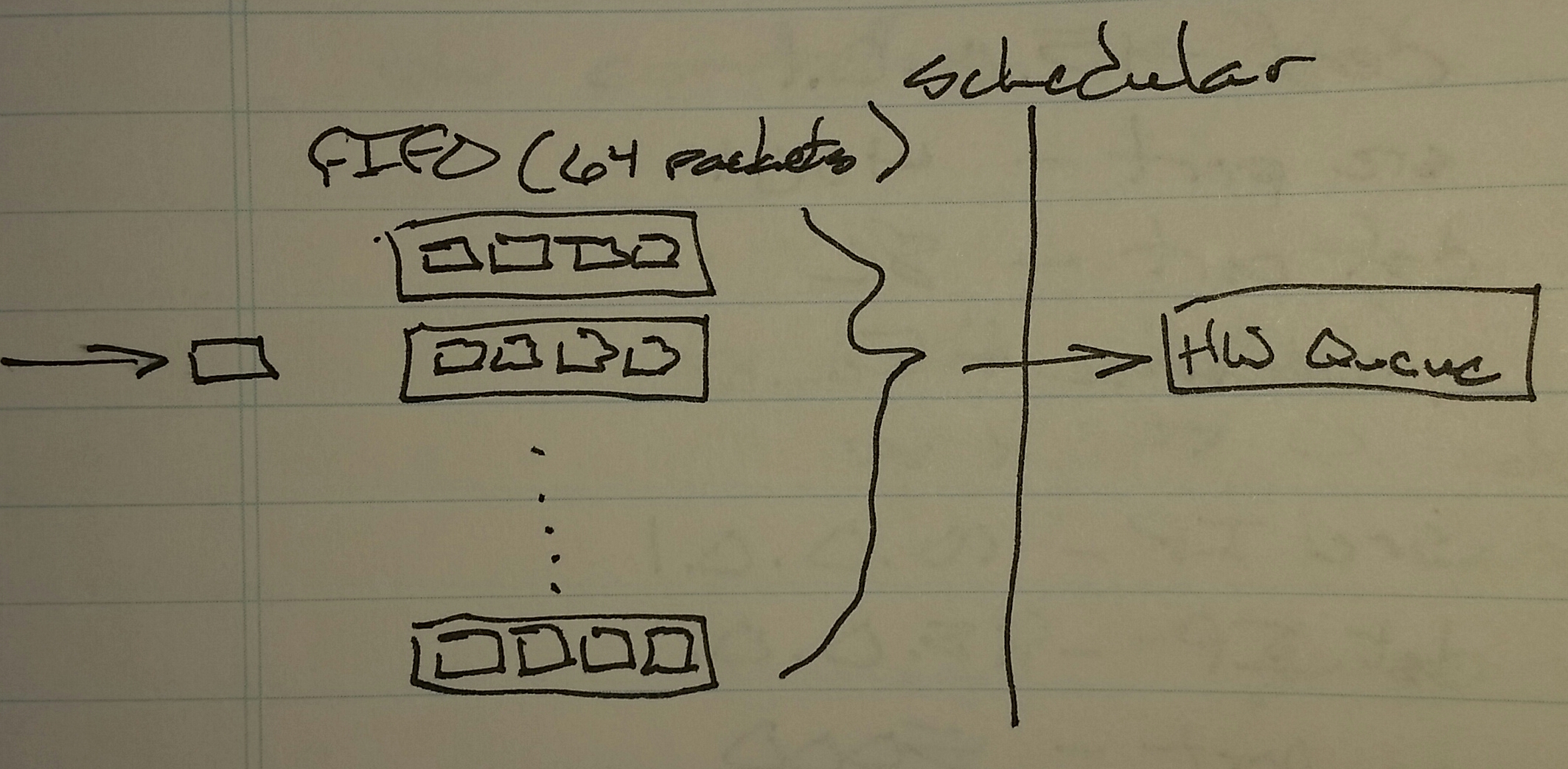QoS Weighted Fair Queueing (WFQ) Notes
QoS Weighted Fair Queueing (WFQ)
– Does not use MQC
– Uses packet flows
-> The collection of packets with the same header information
-> Source / destination IP addresses
-> Source / destination port numbers
-> Protocol
-> Precedence value
– Every flow creates a software queue
– Maximum number of queues is 4096
– Flows are treated according to two things
-> Precedence
-> Packet length
– Higher precedence and smaller packets are preferred over lower precedence and bigger packets
e.g. –
– Flow1
-> src IP – 10.0.0.1
-> dst IP – 15.0.0.1
-> src port – 4001
-> dst port – 80
-> precedence – 5
– Flow2
-> src IP – 10.0.0.1
-> dst IP – 15.0.0.1
-> src port – 5000
-> dst port – 80
-> precendence – 6

WFQ Schedular Mechanism

Sequence Number (SN) (Finish time) = old sequence number + ( packet length * weight )
– Lower is better
Weight = 32384 / IPP + 1
Scheduler selects the packet with the lowest sequence number among flows
– Within a flow, packets are FIFO
– Between flows, the scheduler selects the next packet based on sequence numbers
Congestive Discard Threshold (CDT)
– Drop mechanism for WFQ
– If the queue is full and a new packet arrives for the queuethe the sequence number is calculated for the packet and the following happens
-> If the SN of the packet is the highest, then the packet is dropped
-> If there is another in any queue having a higher SN, then the packet with the higher SN is dropped
CDT value = queue length = 64 by default
Dynamic queues = 256 by default
RSVP queues = 0 by default
-> Can be created to provide very low weight reserved queues for RSVP traffic
WFQ Packet Limit = 4096 packets
WFQ is the default for serial interfaces with clock rates lower than 2000kbps
– For other interfaces, FIFO is the default
int fa0/0
fair-queue [congestive-discard threshold [dynamic-queues [reservable-queues]]]
hold-queue <number> out
-> Max number of packets that can be held in memory
sh queueing fair
sh int fa0/0

